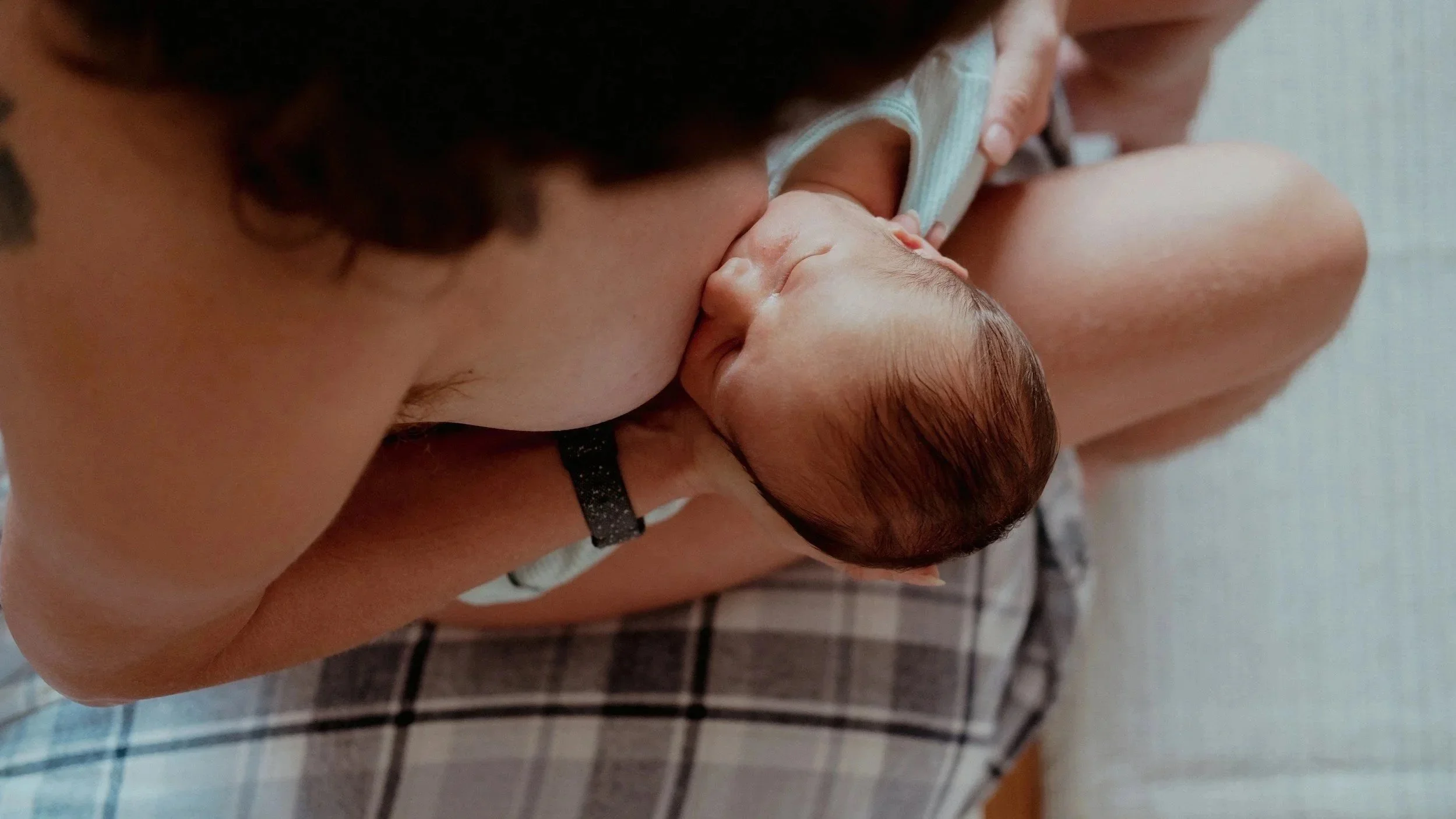You Don’t Need to “Bounce Back." You’re Becoming Someone New
We need to talk about the idea of “bounce-back culture” postpartum. You’ve probably felt it: the subtle (or not-so-subtle) comments about your body, the Instagram reels showing a flat stomach at six weeks, the casual “you’ll get back to yourself in no time.”
Here’s the truth: you are not meant to bounce back. You are meant to move forward—into someone entirely new.
The Myth of the Pre-Baby Body
Up to 91% of mothers retain weight postpartum, and more than half shift into a higher BMI category. A quarter of women still carry 11 pounds or more a year after birth. That’s not failure. That's biology. Your body spent nine months building a human. It will not erase that in six weeks.
And yet, culture sells us the opposite. It tells moms that unless you look like you never had a baby, you’re “letting yourself go.”
The Breastfeeding Balancing Act
Breastfeeding does burn calories, but it’s not the golden ticket to a flat stomach. And here’s the kicker: pushing too hard, through restrictive dieting or over-exercising, can harm recovery and even tank milk supply.
The anxiety is real. I hear moms whisper their fears: “If I work out too much, will my milk dry up?” “If I eat the wrong thing, will it hurt the baby?” That constant tug-of-war between wanting your body “back” and wanting to nourish your baby is exhausting.
This is why the slow, gradual approach matters. Gentle movement. Rest. Fuel. Hydration. Listening to your body instead of punishing it.
And if you’re a mom who can’t or doesn’t want to breastfeed, this still applies to you. Your body has done the work of growing and birthing a baby, and it deserves the same rest, nourishment, and care.
Healing doesn’t hinge on whether or not you breastfeed; it hinges on honoring your body’s signals, moving gently, and giving yourself permission to recover without apology.
Body Image Isn’t Just About Jeans
Studies show body dissatisfaction peaks at just a few weeks postpartum, and it’s tightly linked with higher risk of depression. Add in the endless stream of “fit mom” photos and you’ve got the perfect storm for self-criticism.
But here’s what I want you to hear: your body has not failed you. It has done the greatest, most taxing, most transformative work possible. A soft belly, stretched skin, wider hips—these aren’t flaws. They are evidence of power.
I love the phrase: “Just two squishy bellies because of each other.” A baby with rolls of milk-fed joy, and a mom with a belly that made it all possible. That’s not shame—that’s sacred.
The Deeper Shift No One Talks About
The obsession with “bounce-back” misses something huge: you aren’t the same person anymore. You can’t be. Your brain literally rewires during pregnancy and postpartum. Hormones flood. Identity shifts. Emotionally, biologically, spiritually—you are reborn right alongside your baby.
So, why do we expect women to act like nothing’s changed? To look the same, feel the same, be the same? That’s not realistic.
You don’t need to bounce back. You need support. Real postpartum care, not just a six-week check and a pat on the back. Policies that allow rest, not just productivity. Communities that honor mothers for who they’re becoming, not who they were.
Moving Forward, Not Backward
Here’s what it really looks like to reject bounce-back culture:
Giving yourself permission to heal on your own timeline.
Fueling your body for recovery, not deprivation.
Moving because it feels good, not because you’re punishing yourself.
Surrounding yourself with people who see you—not just your body.
Letting go of the fantasy of the “old you.” That version doesn’t exist anymore and that’s not loss, it’s transformation.
The Takeaway
You are not here to shrink back into your old life. You are here to expand into your new one. The bounce-back lie keeps mothers small, silent, and unsupported. The truth? You are not supposed to stay the same. You are meant to evolve.
So, let’s stop glorifying how quickly a woman can erase evidence of birth, and start celebrating the messy, raw, miraculous process of becoming a mother.

